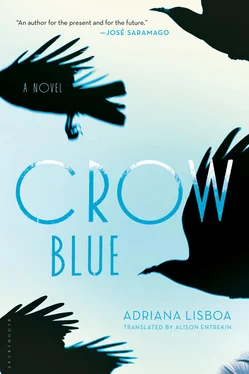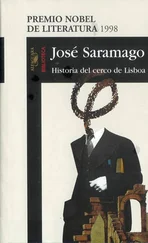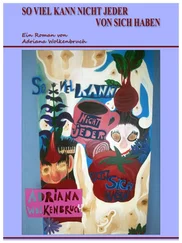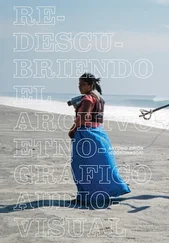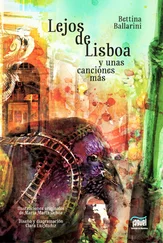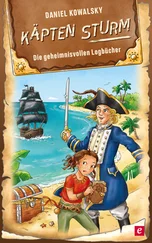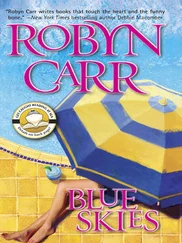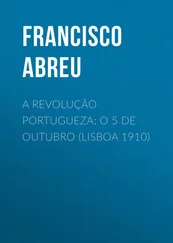I was hoping to save some money to come visit you at Christmas but it’s a bit hard.
On the other end of the line she’d cry a little.
Tell me you’re OK.
I’m fine, Elisa.
Then she’d ask to speak to Fernando and they’d talk for an average of four minutes.
Every two weeks I received a letter from Elisa talking about work, home, the beach, the weather, at some point a man she’d met — the son of an elderly woman I’m caring for, he seems like a decent person and he’s asked me out to dinner on Saturday. I don’t know if I’ll accept his invitation. I think I’ll accept it but I’ll let him ask again so he won’t think I’m too available, you know. Men like it when we play hard-to-get. If you’re too easy it’s no fun.
Carlos peered at the letter. He pointed at the Portuguese word for “work,” trabalho , mouthed the Spanish trabajo , and grinned. He pointed at the word for “time,” tempo , and mouthed tiempo . He asked me what filho meant. Hijo , I said, and he was a little disappointed by the lack of obvious similarities.
I asked Carlos if he had grandparents. He nodded and I noticed that the lenses of his glasses were filthy.
Give me those.
I washed his glasses with dishwashing liquid in the kitchen sink and dried them on the tea towel.
He told me he had two sets of grandparents and that when he was big he was going to visit them but that at the moment he couldn’t leave America because if he did he wouldn’t be able to return. He could only leave the day he had papeles . His father had explained it to him. It was important to stay in America and get papeles . His father had told him that it would be easier if he studied, so he was studying. Hard.
The image of a crow stared at us from the computer screen. Carlos had to do a school project about some kind of bird, and he’d chosen the crow.
He asked me if I knew that crows were really intelligent. And if I knew that some crows also ate dead animals. And that many species had become extinct after humankind colonized places like New Zealand and Hawaii.
(Where’s New Zealand? he asked. I went to get an atlas and opened it in front of him. It’s far away. You have to cross the ocean to get there. I covered the name on the map with my finger. What’s this ocean called? I tested him. He gave a start and answered Pacific! with a nervous, credulous cry. While he was there he also observed that New Zealand was also far away from Brazil and El Salvador, where his grandparents were awaiting his visit the day he had papeles . Then he asked me if I thought there were any boys from New Zealand who didn’t have papeles in Colorado.)
Carlos told me that there were the cuervos that los gringos call crows and the cuervos that los gringos call ravens. Not the same. See: here los raven, Corvus corax . Here los crow, Corvus brachyrhynchos .
According to the library book, the raven is a meditative, aloof individual that you find in deserts, in the tundra, on plains and in forests, in large, open, more or less unoccupied spaces. It is a large black bird with a wedge-shaped tail and feather necklace. It mates, though it is not known if it does so for life. There are signs that couples last at least a year. Both parents care for their young, many of which die in their first few years of life. According to research, individuals living in the wild can live for as many as thirteen years. In captivity, as many as eighty (in the Tower of London, where their wings are clipped in the name of tradition, so they can come and go but not too much, the oldest lived until it was forty-four). It does not migrate, but can travel short distances to avoid climatic extremes. It doesn’t live in flocks. It prefers solitude or, at the most, lives in pairs. It likes to hover in the sky, as if the air were a large unmarked plain and it weighed nothing. It eats practically everything: fruit, shoots, cereals, insects, amphibians, birds, reptiles, carrion. It even eats other animals that eat carrion. It would seem that the Corvus corax is a serious bird that respects life and death.
According to the book, the crow is an equally black bird that you find in open spaces with trees nearby. It also feels at home in urban spaces — in suburbs, parks, coastal towns. Its feathers are lustrous. Iridescent. It is smaller than its raven cousin. It has strong claws and, when young, blue eyes, that later darken. When it is born, it is fed by its parents and older siblings. It can live for up to fourteen years in the wild. In captivity it lives for an average of twenty years. In the crow’s complex social system, adults stay fairly close to the place of their birth and often don’t mate, instead helping to take care of other crows’ young. Sometimes they migrate in flocks. The Corvus brachyrhynchos is omnivorous. It eats insects and their larvae, carrion, mice and frogs and rabbits, eggs stolen from smaller birds’ nests, fruits and nuts and cereals, and anything it can find in an unwatched trash can.
Carlos’s mother was still in hospital but according to him she would be home on Monday. She would arrive thinner, with dark little valleys under her eyes and two invisible hands pushing her shoulders down and forward, aging her, subordinating her. And she would say she wanted to return to San Salvador, but she would say it without shouting, because by now she had learned how dangerous it was to resort to too many decibels and attract the neighbors’ attention, in a place where people really do call the police and the police really do come. A few days later, she would invite the persistent pamphlet lady into her house and talk about god. She would argue that if god really existed she would be back in San Salvador. With her daughter. And the pamphlet lady would talk about the inscrutability of His designs. Later, in Florida, Carlos’s mother would recover her faith and forgive god.
Carlos printed out the bird photographs that he found during his research. The big Corvus corax , solitary and remote, ravens. The Corvus brachyrhynchos , crows, with their cooperative souls and knack for trash cans. Then he hugged me and said he missed his sister and asked me for some guaraná .
I gave him a little and told him that with any luck he’d soon be able to go visit his sister in Florida. As soon as things settled down a little.
And he told me that sure, why not, but that afterwards he’d come back. He wanted to live and die in Colorado and if possible close to me.
Then he asked Fernando, who was watching us from the couch, if he thought I was going to die four years before him because I was four years older than him. And Fernando replied that things didn’t work like that. And Carlos thought about it for a moment and said, like someone handing down a sentence, that it was true, he was right.
Carlos spent that night with us, after asking his father for permission, and asked if we could stay up until midnight. We watched TV and played cards and before midnight he had already fallen asleep on the couch with his mouth open, snoring softly. We put a pillow under his spiky hair, took off his glasses and covered him with a blanket.
The next day, a Sunday, Fernando went out early. I didn’t know why. Maybe he had gone for a swim at the public swimming pool — the one that was indoor and heated and thus didn’t stay closed to the public for eight months of the year. It was more or less his version of a social life. He would swim a couple of miles amidst other semi-sub-aquatic arms and legs and would come home smelling of chlorine and hang a towel smelling of chlorine in the bathroom.
He left a note on the table. It didn’t explain anything. It just said LOOK OUTSIDE. Carlos was still asleep, so I carefully opened the front door of the still-groggy house.
Читать дальше
